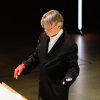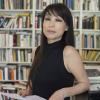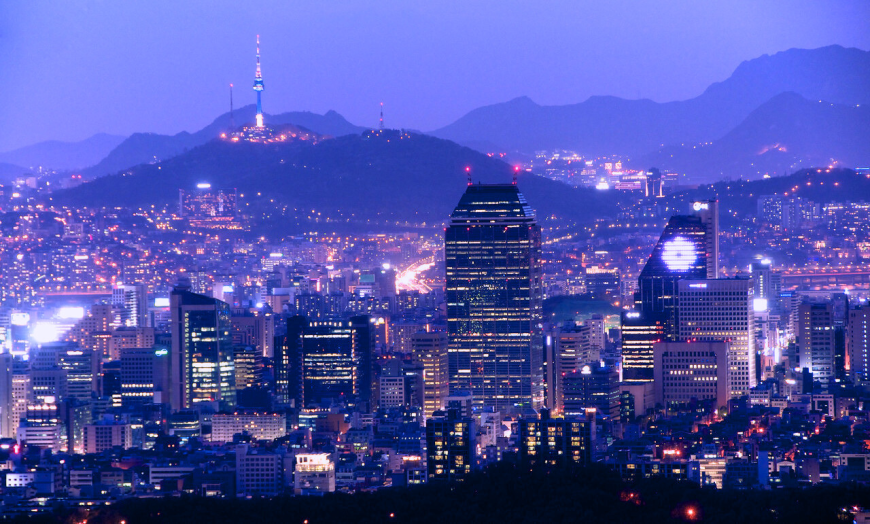
Over the past decade or so, South Korea has become a major player on the international cultural scene. Parasite, winner of the 2020 Academy Award for Best Picture; Squid Game, one of the most-watched Netflix series ever; K-pop, the music of choice for a huge subset of teens around the world — all are Korean exports.
This explosion of creativity very much extends to classical music. In recent years, the small nation has produced a disproportionate number of world-class instrumentalists, conductors, and composers. South Korea has that in common with Finland, another country punching well above its weight in the symphonic world.
To conclude its 2024–2025 season at Walt Disney Concert Hall, the ever-inventive Los Angeles Philharmonic is celebrating Korean music and musicians in its first-ever Seoul Festival. Running June 3–10, the lineup consists of four concerts (one of which is scheduled to be repeated) featuring a mix of new music by Korean composers and standard classical repertory performed by Korean soloists.
While the festival is spotlighting some of “the most cutting-edge up-and-comers of South Korea,” according to LA Phil Chief Programming Officer Meghan Umber, the focus isn’t exclusively on Seoul. Rather, “it’s about the influence that Seoul and South Korean culture have had on all of us around the world,” Umber said.
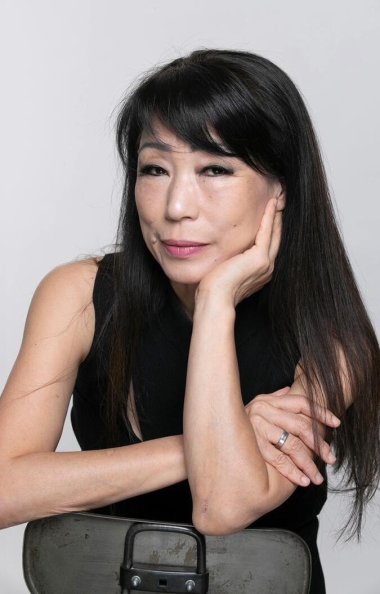
Composer Unsuk Chin, who’s curating the concerts, explained her vision: “At this festival, I would like to present the younger generation of Korean musicians, conductors, and composers in a wide spectrum. They are all active not only in Korea but also in the international music scene. I want the audience to receive an impression of the current state of the musical output from Korea … in its rich variety.”
The festival was originally scheduled for the 2020–2021 season but was postponed due to the pandemic shutdown. “So we’ve been talking about this since at least 2019,” Umber said. “Like all things post-COVID, getting it back online was slow, but we knew it was something we wanted to do.”
Umber gave some more background: “At the LA Phil, we’ve had some great successes in the past focusing on particular cities and their diasporas. We’ve found it’s a great way to unlock new relationships and meet new artists. We held a Mexico City festival back in 2017 and a Reykjavík festival [earlier that year]. Seoul has long been on our mind, in part because Los Angeles has the largest South Korean population outside of Korea.”
For a musical authority, the orchestra turned to Chin, a native of South Korea who now lives in Berlin. “She was immediately enthusiastic, telling us, ‘I know exactly who I’d want to bring and who I would put on your stage,’” Umber recalled.
“Unsuk is very connected with the Korean diaspora. She runs a music festival in South Korea. She knows the culture’s composers and creators and visionaries. So we were happy to turn the keys over to her to create these programs. She hand-selected every composer, every performer, every piece.”
Not surprisingly, the five-year postponement required some changes to the original schedule. In addition, the passage of time has meant that some of Chin’s choices resonate differently now.
Consider the participation of pianist Sunwook Kim, who’s been tapped to solo in Brahms’s dramatic First Piano Concerto on June 6. “He was meant to be in the 2021 festival, at which point he would have been a great discovery,” Umber said. “Unsuk brought his name to the table. He was not someone we knew.”
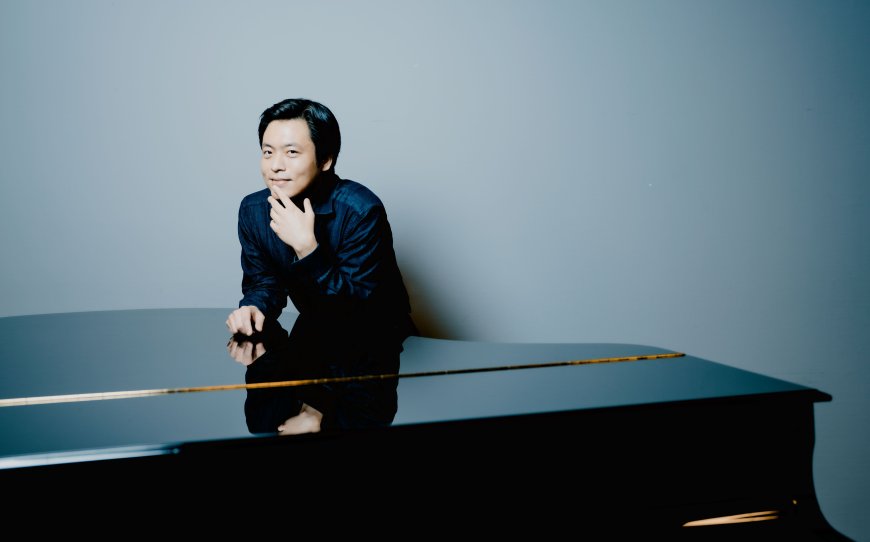
But over the past four years, Kim has become an international star and already made several appearances with the LA Phil. His return makes him, in essence, “the festival’s elder statesman, even though he isn’t yet 40,” Umber said. “We have found he has a lot of superfans among Koreans living in L.A.”
Kim’s popularity is a reminder that the festival is both an artistic statement and a marketing opportunity. Umber said the orchestra is working with the newspaper The Korea Times to reach Southern California’s sizable Korean American community.
“I think it’s a festival for everyone, but I hope there will be a lot of Koreans in the audience,” she said. “We want to make this a creative home for everyone in L.A. County while we also show off the best in the world.”
There are a number of soloists vying for the title of “most exciting newcomer” with Kim out of contention. They include conductor Hankyeol Yoon, violinist Inmo Yang, and cellist Jaemin Han. That trio is set to feature in Brahms’s Double Concerto on June 7 and 8 (a program that also highlights Chin’s music).
“Each has rising star power,” said Umber. “Each is making their debut with the Phil. We are introducing them to our audience at the moment of their breakout stardom.”
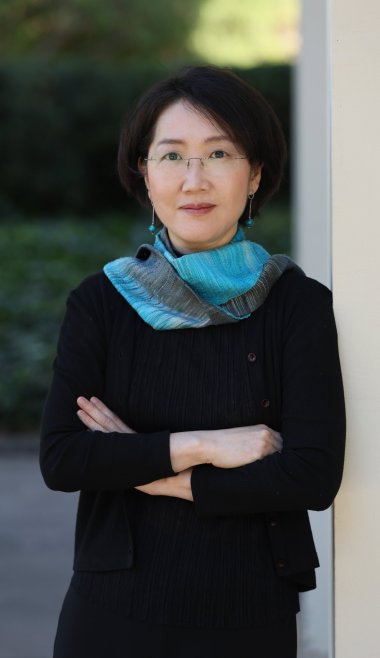
The festival is also introducing audiences to several composers, including Kay Rhie, who is on the faculty at UCLA. About her music having its first LA Phil performance, she said, “I’m very psyched — and a little bit nervous.”
Born in South Korea, Rhie moved to Southern California with her family at age 16. As a young adult, she spent a number of years on the East Coast, studying composition with the late Steven Stucky in the doctoral program at Cornell University.
Originally a pianist, she dabbled in composition during her undergraduate years at UCLA. But the catalyst for her composing career was an LA Phil Green Umbrella concert that she attended in the late 1990s, at which Esa-Pekka Salonen conducted a piece by the then-obscure Chin.
“I was blown away,” Rhie recalled. “It was so intriguing, so beautiful in such a weird way. I didn’t know there was music that sounded like this. I was hugely inspired.”
The work that Rhie has written for the festival’s June 6 concert is called H’on, which “means ‘spirit’ or ‘soul’ in Korean,” she explained. “For me, it’s [asking the question] ‘What does the spirit of Korean sound mean?’ It’s about the reemergence of fragments of memory into my immigrant identity. It’s my refracted memory of Korean music.”
The piece marks something of a departure for Rhie. “For a long time, I didn’t feel comfortable using traditional Korean elements,” she said of her compositions. “I’m much more about hybridity. I’m between cultures. I’m between languages.
“But with this piece, I’m more interested in my deep roots. There are images of traditional Korean music that [have] stayed with me, even if I didn’t know [directly] about them. Making short trips [back home], digging into my memory of my childhood, I got the idea for a lot of the motifs of this piece.”
In the classical world, there is sometimes the expectation that composers whose backgrounds are not in Western music will naturally incorporate ethnic traditions into their work. Rhie recalled one presenter who seemed surprised and disappointed that an earlier piece of hers didn’t sound Korean.
“My answer is to find a language that is more universal,” Rhie said. “I’ve thought a lot about [Béla] Bartók over the years. My teacher Steve Stucky loved Bartók and Bartók’s student [Witold] Lutosławski,” both of whom mixed folk elements into their modernist styles. “That’s what I absorbed and deeply resonated with. We composers try to find a universal point of connection.”
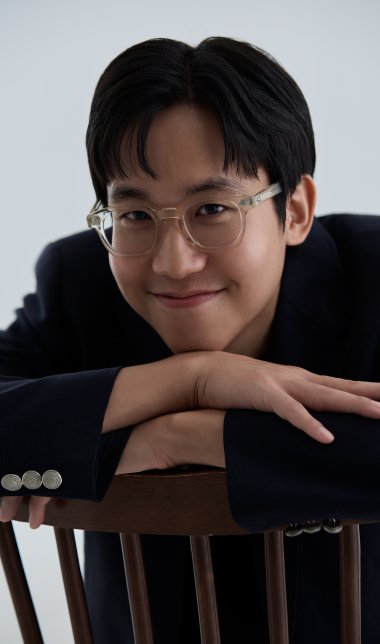
Composer Whan Ri-Ahn, who’s slated to hear the world premiere of his orchestral work Spring Will Come Again on the festival’s June 7 and 8 concerts, has a story to similar to Rhie’s. He moved to the U.S. at age 14, attending the Interlochen Arts Academy in Michigan. He subsequently moved to Europe and currently lives in France.
He traces the genesis of his new piece back a decade, to his fascination with a painting of a baby in London’s National Portrait Gallery. The vivid image led him to contemplate life, death, and the passage of time — thoughts that returned last year when his grandmother died.
“She used to tell me about the spring landscape of her hometown,” he recalled. “That memory made me revisit the idea of spring and the cycle of life.
“Musically, the work is built around evolving pentatonic modes and harmonic cycles like the circle of fifths, which shift constantly like growing branches,” he elaborated. “The overall character moves between very calm, slow sections and more vehement, ritualistic passages sometimes evoking the vivid energy of spring.”
Texu Kim’s Viola Concerto, which is set to premiere in its revised form on June 6, evokes traditional Korean music in a more direct way. Subtitled “Ko-Oh,” which in Korean is a baby-talk word for “sleep,” the work features a final movement based on a traditional lullaby.
“This song completely evokes my childhood,” said violist Yura Lee, who’s preparing to perform the concerto with the LA Phil. “It brings up many complex feelings, having been born and growing up in a small nation wedged in between more powerful nations — the perils that come with it and the mentality of people that have been affected by its history.”
So why has South Korea become such an international cultural powerhouse? No one knows for certain, but there are opinions.
“We are not a country with an abundance of natural resources, like many other smaller countries,” said Lee. “Our resources are the people, their talents, and their intellect. I think a lot of us recognize that and find our place in the world through our unique voices and skills.”
“In Europe, it is said Koreans are very much like Italians,” said Ri-Ahn. “We’re very expressive. We like to sing and dance. We enjoy creating things. Korean culture was a little bit hidden in the 20th century, but now people are exploring it more and more.”
Chin gave the most succinct answer. “I think it is due to the long cultural tradition of our country,” she said, “and the temperament of Koreans.”


